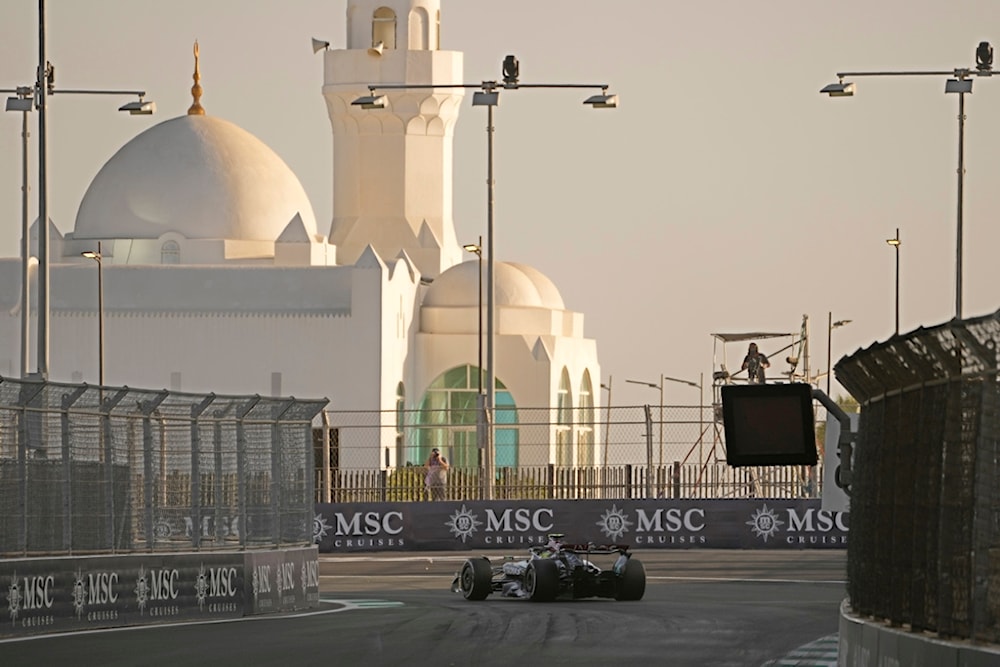Saudi Arabia on spending spree to steer away from oil dependency
The country is embarking on a massive spending spree to diversify its economy, spanning mega projects to sports and technology,
-

Mercedes driver Lewis Hamilton of Britain steers his car during the first practice session ahead of the Formula One Saudi Arabian Grand Prix at the Jeddah Corniche Circuit in Jeddah, Saudi Arabia, Thursday, March 7, 2024. (AP)
A report by Bloomberg on Monday detailed some of Saudi Arabia's plans to shift away from oil dependency.
According to the report, the country is embarking on a massive spending spree, spanning mega projects to sports and technology.
These are all measures intended to expedite the transition to Vision 2030, the report says, noting that the country is poised to witness an annual deployment of capital reaching $70 billion by 2025.
However certain constraints on its financial capabilities have prompted the Public Investment Fund (PIF), the government, and local banks to explore other avenues for raising capital.
One notable proposal entails the PIF acquiring the national airline, Saudia, with the objective of enhancing efficiency, profitability, and tourism prospects.
Read more: Under façade of freedom, MBS leads new era of political repression
In parallel, local banks are actively seeking additional funding to sustain the local economy through loans, which could lead to record debt issuance this year.
Moreover, the sovereign wealth fund contemplates accelerating debt sales and exploring other financing avenues, including stock offerings in Aramco, potentially raising to $20 billion.
Read more: China's trillion-dollar investment in the Middle East threatens US
Whether such measures will contribute to steering the Saudi economy away from oil dependency is up for debate.
Most of the measures mentioned involve superficial means of diversification, including acquisitions and purchasing Western or Asian-made technologies.
Moreover, the Saudi economy has recently adopted traits resembling cultural assimilation, incorporating Western elements such as pageants and Formula 1 races, which are solely meant for consumption purposes.
Remaining within the confines of commercial activity, as opposed to engaging in industrial activity, does not contribute to the empowerment of productive forces.
Such strategies bring minimal contributions to the Saudi economy, and it will likely continue to face challenges unless it prioritizes investment in national productive capacities.

 2 Min Read
2 Min Read








